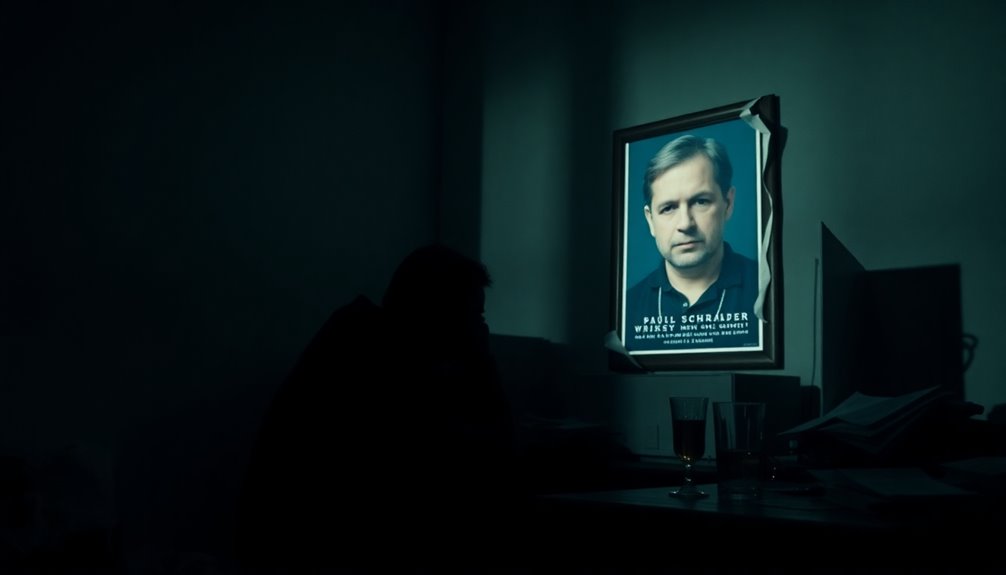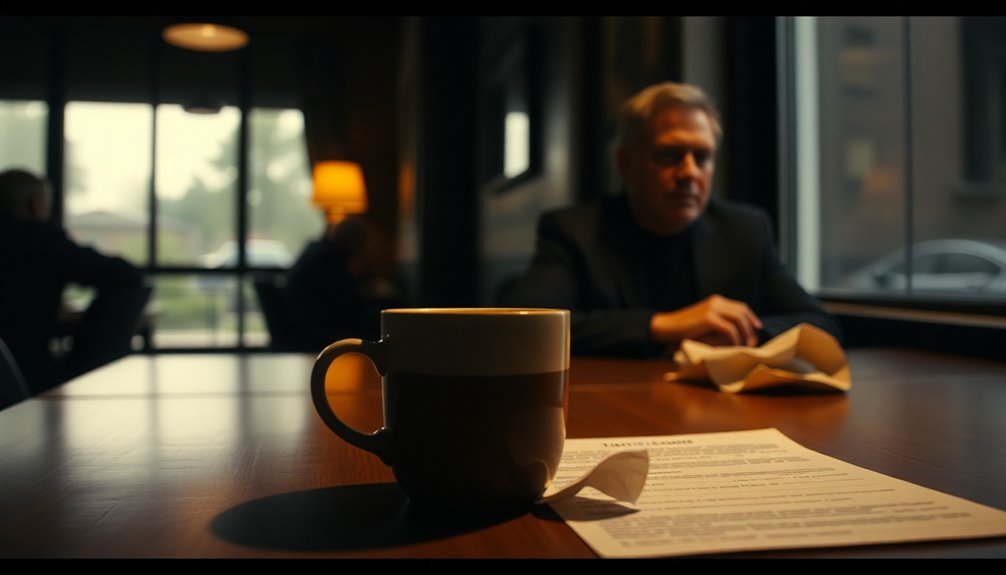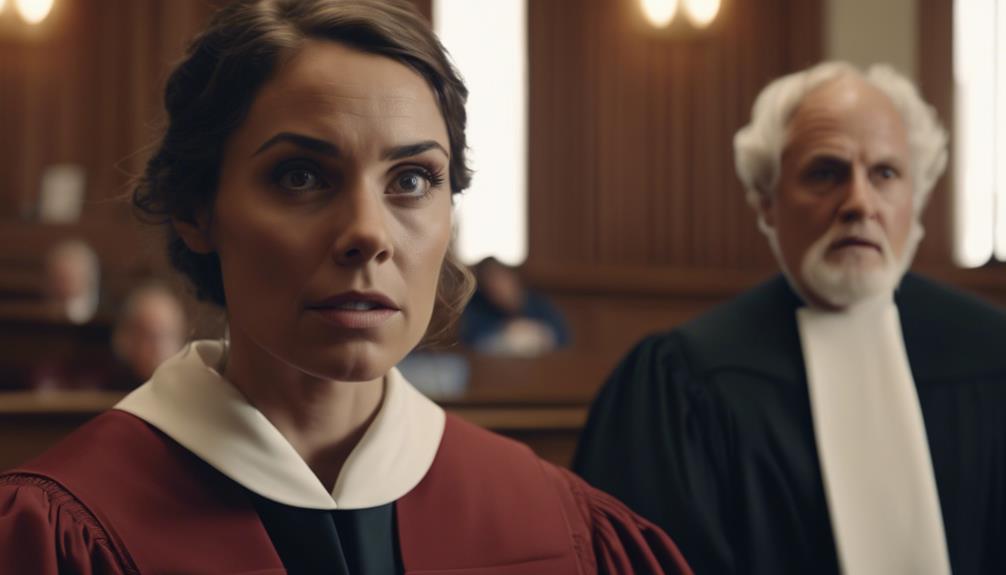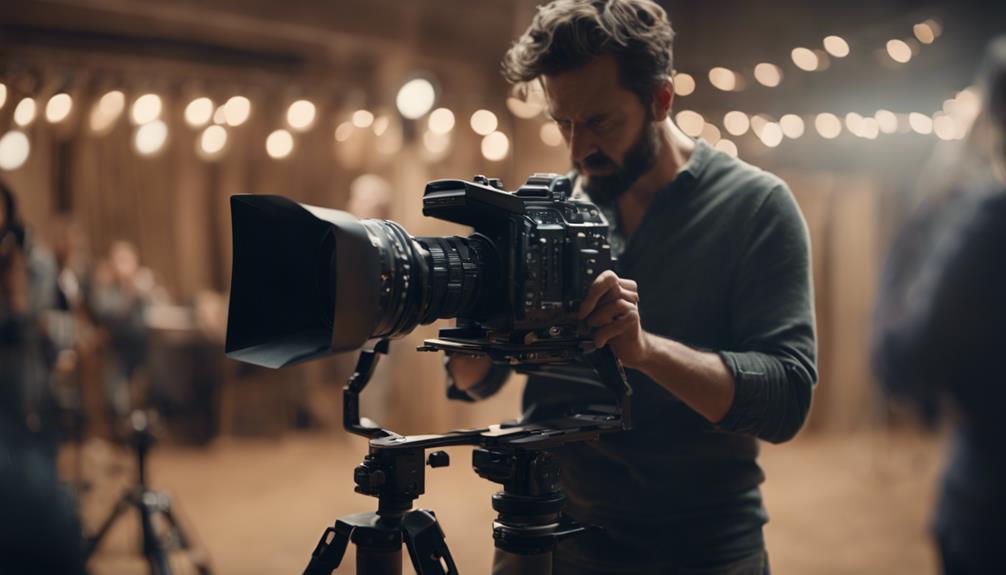You might want to know that Paul Schrader’s facing serious harassment allegations from a former assistant, claiming inappropriate touching and lewd remarks during the 2024 Cannes Film Festival. His legal team counters these claims, calling them misleading and pointing out past enthusiasm from the assistant. Settlement negotiations have stalled due to Schrader’s reluctance to agree, leading to a breach of contract lawsuit. The situation has serious implications for his career and the industry’s approach to accountability. Stay tuned for more details.
Key Takeaways
- Paul Schrader faces allegations of harassment from a former assistant, including inappropriate touching and lewd comments during the 2024 Cannes Film Festival.
- His legal team argues the claims are misleading, highlighting the assistant’s previous enthusiasm for the job and lack of discomfort in social situations.
- Settlement negotiations are complicated by Schrader’s reluctance to sign, citing personal illness and a change of heart.
- The lawsuit includes a breach of contract claim regarding the proposed settlement, with the victim’s attorneys asserting it was binding.
- The allegations have serious implications for Schrader’s career, reflecting broader industry issues regarding accountability and workplace harassment.

Paul Schrader, the acclaimed director behind classics like ‘Taxi Driver’ and ‘Raging Bull’, now faces serious harassment allegations from a former assistant. The incidents reportedly occurred during the 2024 Cannes Film Festival, where the assistant, who worked with Schrader for over three years, claims he subjected her to inappropriate touching and lewd comments. Disturbingly, she alleges that he exposed himself in his hotel room, an incident that has intensified the scrutiny surrounding his behavior.
In response to the allegations, a motion was filed in New York Supreme Court detailing a history of inappropriate conduct. Schrader’s legal team has countered by labeling these claims as misleading, asserting that the assistant had shown enthusiasm for working with him prior to the allegations. They point out that she deleted favorable social media posts about Schrader before approaching her lawyers, suggesting a shift in narrative. Furthermore, they maintain that she displayed no discomfort during numerous social engagements.
Settlement negotiations have been a focal point of this controversy. A financial agreement was proposed to resolve the allegations, but Schrader’s reluctance to sign has complicated matters. His team claims that personal illness and a change of heart led to his delay in finalizing the settlement. However, the victim’s attorneys argue that the agreement was binding, regardless of Schrader’s hesitations. Notably, the lawsuit includes a breach of contract claim regarding a settlement agreement that Schrader allegedly backed out of.
The impact of these allegations on Schrader’s career and reputation is significant, as the film industry faces increasing scrutiny over issues of workplace harassment. Public figures often find their careers in jeopardy when such claims arise, and the broader implications of this case are evident.
As the situation unfolds, it raises crucial questions about accountability and the treatment of those who come forward with their experiences. It’s a stark reminder that the industry must address harassment and foster a safer environment for all.
Frequently Asked Questions
What Other Films Has Paul Schrader Directed?
You might know Paul Schrader for his iconic films, but he’s directed several others worth exploring.
Check out “Hardcore,” where a father searches for his daughter, or “Mishima: A Life in Four Chapters,” a biopic about the Japanese writer.
Don’t miss “Auto Focus,” which delves into Bob Crane’s life.
More recently, he directed “The Card Counter” and “Master Gardener,” showcasing his talent for storytelling across diverse themes and genres.
How Has the Public Reacted to These Allegations?
It’s ironic how someone celebrated for their creativity can spark such outrage.
The public’s reaction to the allegations has been one of shock and disappointment. Many of you have taken to social media, expressing your concerns and calling for accountability.
The discussions emphasize the need for change, reflecting a broader cultural shift in holding public figures responsible for their actions.
This movement continues to resonate deeply, highlighting the importance of safe environments in all industries.
What Are the Potential Legal Consequences for Schrader?
If you consider the potential legal consequences for someone facing serious allegations, they can be significant.
You might see criminal charges, which could lead to jail time if proven guilty. In civil court, financial penalties could arise from a judgment against them.
Beyond legal ramifications, there’s also the risk of reputational damage, impacting future projects and collaborations.
Has This Incident Affected Schrader’s Career?
You might think a single incident wouldn’t heavily impact a filmmaker’s career, but that’s not usually the case.
Allegations like these can tarnish reputation and strain professional relationships, making it harder to secure future projects. Negative publicity may lead to lost endorsements and delays in production, ultimately affecting creative output.
The industry often reacts by distancing itself from those involved in controversies, further complicating Schrader’s career landscape moving forward.
What Resources Are Available for Harassment Victims?
If you’re a victim of harassment, there are plenty of resources available to support you.
You can reach out to the National Sexual Assault Hotline at 800-656-HOPE for confidential assistance.
The National Domestic Violence Hotline also offers help through text and calls.
Additionally, local non-profits and community centers often provide counseling services and support groups.
Don’t hesitate to seek the help you deserve; you’re not alone in this.
Conclusion
In light of these serious allegations, it’s hard to ignore the implications for both Schrader’s career and the broader film industry. Accusations like these not only tarnish reputations but also raise questions about accountability. Can we truly separate an artist’s work from their personal conduct? As this situation unfolds, it’s crucial to remain vigilant and support those who come forward, ensuring that respectful workplaces become a standard, not an exception.









